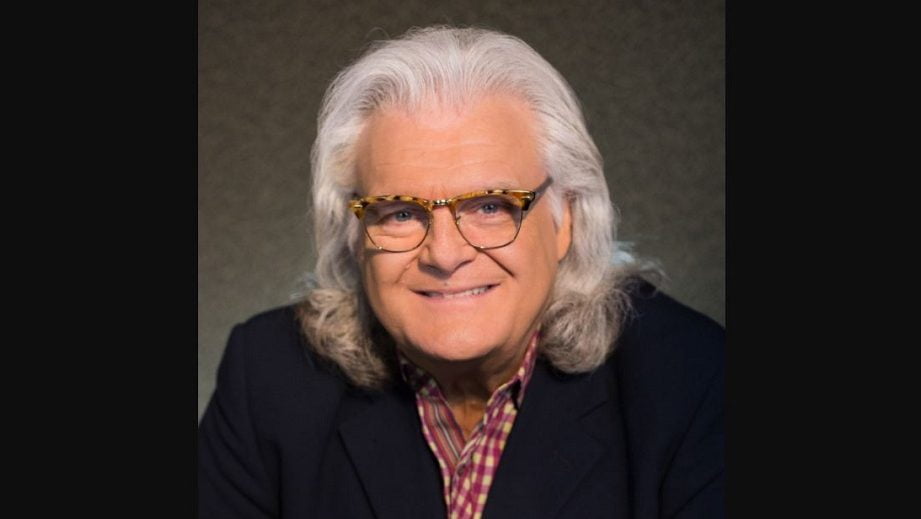Nominees for the 31st Annual IBMA Bluegrass Music Awards have been revealed, with six nominees competing for Entertainer of the Year in 2020: Balsam Range, Billy Strings, Del McCoury Band, Doyle Lawson & Quicksilver, Sister Sadie, and Special Consensus. The extra nominee is due to a tie; in addition, the Album of the Year category has seven nominees, also due to a tie.
Three inductees will join the Bluegrass Hall of Fame: owner of Nashville’s iconic Station Inn, J.T. Gray; hardcore bluegrass traditionalists The Johnson Mountain Boys; and one of the premier bands at the forefront of the contemporary/progressive bluegrass movements of the 1970s and ’80s, New Grass Revival.
Additionally, the following will receive the Distinguished Achievement Award: festival pioneers Norman & Judy Adams, Musicians Against Childhood Cancer (MACC) founders Darrel & Phyllis Adkins, fiddle virtuoso/educator Darol Anger, San Diego’s KSON Bluegrass Special host Wayne Rice, and bluegrass innovator Jack Tottle.
The IBMA Awards will be broadcast on SiriusXM’s Bluegrass Junction on Thursday, October 1. However, the annual World of Bluegrass Conference will be virtual-only, due to COVID-19 concerns.
The IBMA Bluegrass Music Awards nominations are below.
ENTERTAINER OF THE YEAR (Tie)
Balsam Range
Billy Strings
Del McCoury Band
Doyle Lawson & Quicksilver
Sister Sadie
Special Consensus
VOCAL GROUP OF THE YEAR
Balsam Range
Blue Highway
Doyle Lawson & Quicksilver
Sister Sadie
Russell Moore & IIIrd Tyme Out
INSTRUMENTAL GROUP OF THE YEAR
Michael Cleveland & Flamekeeper
Mile Twelve
Ricky Skaggs & Kentucky Thunder
Sam Bush Band
The Travelin’ McCourys
ALBUM OF THE YEAR (Tie)
Chicago Barn Dance
Artist: Special Consensus
Label: Compass Records
Producer: Alison Brown
Home
Artist: Billy Strings
Label: Rounder Records
Producer: Glenn Brown
Live in Prague, Czech Republic
Artist: Doyle Lawson & Quicksilver
Label: Billy Blue Records
Producers: Doyle Lawson and Rosta Capek
New Moon Over My Shoulder
Artist: Larry Sparks
Label: Rebel Records
Producer: Larry Sparks
Tall Fiddler
Artist: Michael Cleveland
Label: Compass Records
Producers: Jeff White, Michael Cleveland, and Sean Sullivan
Toil, Tears & Trouble
Artist: The Po’ Ramblin’ Boys
Label: Rounder Records
Producer: Dave Maggard
Tribulation
Artist: Appalachian Road Show
Label: Billy Blue Records
Producers: Jim VanCleve, Barry Abernathy, and Appalachian Road Show
SONG OF THE YEAR
“Both Ends of the Train”
Artist: Blue Highway
Writers: Tim Stafford/Steve Gulley
Label: Rounder Records
Producers: Blue Highway
“Chicago Barn Dance”
Artist: Special Consensus with Michael Cleveland & Becky Buller
Writers: Becky Buller/Missy Raines/Alison Brown
Label: Compass Records
Producer: Alison Brown
“Haggard”
Artist: The Grascals
Writer: Harley Allen
Label: Mountain Home Music Company
Producers: The Grascals
“Hickory, Walnut & Pine”
Artist: The Po’ Ramblin’ Boys
Writers: Slaid Cleaves/Nathan Hamilton
Label: Rounder Records
Producer: Dave Maggard
“Living Like There’s No Tomorrow”
Artist: Doyle Lawson & Quicksilver
Writers: Jim McBride/Roger Alan Murrah
Label: Billy Blue Records
Producers: Doyle Lawson and Rosta Capek
GOSPEL RECORDING OF THE YEAR
“Angel Too Soon”
Artist: Balsam Range
Label: Mountain Home Music Company
Producers: Balsam Range
“Because He Loved Me”
Artist: Dale Ann Bradley
Label: Pinecastle Records
Producer: Dale Ann Bradley
“Gonna Rise and Shine”
Artist: Alan Bibey & Grasstowne
Label: Mountain Fever Records
Producer: Mark Hodges
“I’m Going to Heaven”
Artist: Doyle Lawson & Quicksilver
Label: Billy Blue Records
Producers: Doyle Lawson and Rosta Capek
“Little Black Train”
Artist: Appalachian Road Show
Label: Billy Blue Records
Producers: Barry Abernathy, Darrell Webb, and Ben Isaacs
INSTRUMENTAL RECORDING OF THE YEAR
“Tall Fiddler”
Artist: Michael Cleveland with Tommy Emmanuel
Label: Compass Records
Producers: Jeff White, Michael Cleveland, and Sean Sullivan
“Shenandoah Breakdown”
Artist: Doyle Lawson & Quicksilver
Label: Billy Blue Records
Producers: Doyle Lawson and Rosta Capek
“Soldier’s Joy”
Artist: Jesse McReynolds with Michael Cleveland
Label: Pinecastle Records
Producer: Jesse McReynolds
“The Appalachian Road”
Artist: Appalachian Road Show
Label: Billy Blue Records
Producer: Jim VanCleve, Barry Abernathy, and Appalachian Road Show
“Guitar Peace”
Artist: Billy Strings
Label: Rounder Records
Producer: Glenn Brown
NEW ARTIST OF THE YEAR
Appalachian Road Show
Carolina Blue
High Fidelity
Merle Monroe
Mile Twelve
COLLABORATIVE RECORDING OF THE YEAR
“Chicago Barn Dance”
Artists: Special Consensus with Michael Cleveland & Becky Buller
Label: Compass Records
Producer: Alison Brown
“I’m So Lonesome I Could Cry”
Artists: Jason Barie featuring Del McCoury & Paul Williams
Label: Billy Blue Records
Producer: Jason Barie
“Tall Fiddler”
Artists: Michael Cleveland with Tommy Emmanuel
Label: Compass Records
Producers: Jeff White, Michael Cleveland, and Sean Sullivan
“The Barber’s Fiddle”
Artists: Becky Buller with Shawn Camp, Jason Carter, Laurie Lewis, Kati Penn, Sam Bush, Michael Cleveland, Johnny Warren, Stuart Duncan, Deanie Richardson, Bronwyn Keith-Hynes, Jason Barie, Fred Carpenter, Tyler Andal, Nate Lee, Dan Boner, Brian Christianson, and Laura Orshaw
Label: Dark Shadow Recording
Producer: Stephen Mougin
“On and On”
Artists: Gena Britt with Brooke Aldridge
Label: Pinecastle Records
Producer: Gena Britt
MALE VOCALIST OF THE YEAR
Ronnie Bowman
Del McCoury
Russell Moore
Danny Paisley
Larry Sparks
FEMALE VOCALIST
Brooke Aldridge
Dale Ann Bradley
Amanda Smith
Molly Tuttle
Rhonda Vincent
BANJO PLAYER OF THE YEAR
Kristin Scott Benson
Gena Britt
Gina Furtado
Ned Luberecki
Scott Vestal
BASS PLAYER OF THE YEAR
Barry Bales
Mike Bub
Todd Phillips
Missy Raines
Marshall Wilborn
FIDDLE PLAYER OF THE YEAR
Becky Buller
Jason Carter
Michael Cleveland
Stuart Duncan
Deanie Richardson
RESOPHONIC GUITAR PLAYER OF THE YEAR
Jerry Douglas
Andy Hall
Rob Ickes
Phil Leadbetter
Justin Moses
GUITAR PLAYER OF THE YEAR
Trey Hensley
Billy Strings
Bryan Sutton
Molly Tuttle
Jake Workman
MANDOLIN PLAYER OF THE YEAR
Alan Bibey
Jesse Brock
Sam Bush
Sierra Hull
Ronnie McCoury

